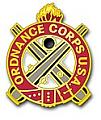Excellent points on NATO in Afghanistan. Having worked in ISAF, I can confirm that the command structure is only slightly more functional than the French army at Agincourt. Why is that?
1. Genuine professional differences of opinion. The Dutch, the British, the Canadians, the Americans, and others involved have different approaches to the mission. The Brits tend to be much more willing to compromise and negotiate with local bad guys, the Americans are much more kinetically-minded, the Dutch are committed to a soft-cap approach, etc. Each has its good points and its faults - but the point is that local commanders can and do refuse to modify their tactics to fit an overarching NATO operational concept.
2. Poor troop-to-task fit. NATO countries want to participate in Afghanistan. Unfortunately, the force generation process is so disordered and riven by politics that the troops who actually show up are sometimes not what the alliance truly needs. Every month we would be notified that a Polish engineer battalion or Romanian force protection company was on its way, when what we really needed was infantry, aviation, or civil affairs. As a result, our operations - and to a lesser extent our tactics - were severely constrained by the nearly random selection of forces at our disposal.
3. Political nervousness. Many contingent commanders had to keep one eye firmly cocked over their shoulders. I know of at least one occasion when a national representative of the defense ministry sat in the operations center of an infantry battalion, satellite phone in hand, to report back on current ops in real time. Some commanders were under tremendous personal and professional pressure, which reduced their ability to operate according to a common NATO plan.
4. Money. You need money to fight insurgents and rebuild countries. NATO doesn't have money. Many individual countries don't have money. Some had money but preferred to spend it on national (and therefore outside the NATO span of control) programs. Nobody had money like the Americans, and even they didn't have enough.
5. Higher headquarters. Some may find this hard to believe, but NATO - as a military headquarters - contributes very little value added to the war in Afghanistan. ISAF is essentially a fiefdom, whose commander feels very little constrained by the NATO Supreme Commander. Thus, there is no higher headquarters - a la CENTCOM - providing continuity or guidance as the command of ISAF rotates. More importantly, there is no Eisenhower-figure, empowered by the alliance nations to impose discipline on subordinate national commanders.
Enough. Things are getting better in some ways. NATO officers are not idiots or incompetent. The problems are recognized and some minor patches made, but I agree that the alliance is going to be weaker coming out of Afghanistan than it was going in.
By the way, and a lot of us Americans forget this, but the US is in NATO also. We sinned as much as anyone in not fulfilling our troop committments, in refusing to modify our tactics, and in imposing caveats on the use of our troops. If NATO fails, we will have contributed to the problem.














Bookmarks